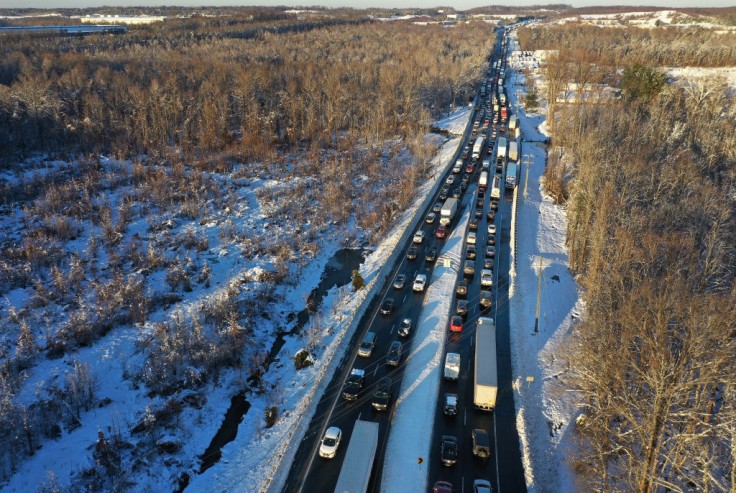
Is your family prepared for a winter emergency? After thousands were left stranded for more than 20 hours at the Interstate 95 from Virginia to Washington D.C. during a winter storm on Tuesday, January 4, motorists came home to assess if they have the needed supplies for such a nightmarish incident, should it happen again.
Weather experts said that more states would come under one to three inches of snow in the coming weeks as the winter storms continue.
Here are some tips on what every family must do and prepare to get through a winter emergency:
1. Have some essential provisions in the car and at home.
David Bennett of the American Automobile Association said to have a first aid kit, extra phone chargers, flashlights, batteries, a shovel or ice scraper, and some non-perishable food for humans and animals, if needed, inside the car. The food supply must be re-assessed from time to time since these carry expiration dates.
Some of these provisions may be prepared for the home as well. Check out the list from Ready.Gov on what should be in every emergency preparedness kit. Put these provisions in one closet or part of the house and tell every family member where to find them, especially if there will be a power outage at night.
2. Pack extra winter clothes and blankets.
If you're going out and expecting to be on the road far longer, pack some extra winter clothes, gloves, or scarves, as well as blankets. If the weather conditions become harsh, you would have the supplies to protect yourself and the family from the freezing temperatures.
According to the U.S. Centers for Disease Control and Prevention (CDC), hypothermia is a serious concern during winter weather. It happens when the body has been exposed to cold temperatures for a prolonged period.
Keep a bag of these extra items by your front door, so you won't forget to bring this when you leave the house. Better yet, put some of this stuff in the trunk. You can always take it out when springtime comes, and you won't need the blankets and the winter clothes.
3. Be sure to gas up.
Fill up the gas tank before hitting the road and make this a daily habit. Having a full tank will also help the driver or the family stay warm because you could occasionally turn on the heater. You'll never know what a snowstorm will bring.
That incident on Interstate 95 started with a truck that lost control and blocked the lanes in both directions. Because of the snowstorm, it took hours for help to arrive and clear the interstate as thousands were stranded in the cold.
4. Remember, unplug items in case of a power outage.
Appliances and electronics at home should be unplugged if the power is down to prevent electrical surges and damage. If the power returns, wait for a few minutes before plugging everything back in because the electricity might not yet be stable.
Stay warm inside the house by keeping all doors locked and windows closed. If you have to step outside for a few minutes, make sure to shut the door behind you and don't linger at the door. Heat will be lost quickly if there are gaps from these openings or drafts coming in. Drafts will also drive up the heating bill if your house's heater is on.